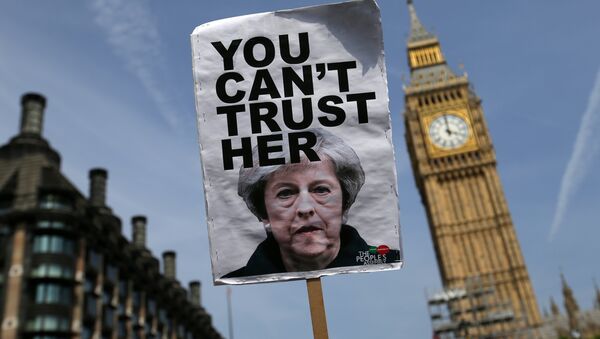The three key demands issued by London First include a lower minimum salary for non-EU workers — currently US$40,000 (£30,000) annually' a six-year "transition period" after Brexit to allow overseas workers to fill the gaps in industries with skills shortages, and fewer visa restrictions for non-EU workers. Moreover, they propose the government hands over a chunk of responsibility for policymaking to the Migration Advisory Committee, an independent public body, to decide how many visas should be handed out, and for how long, in each industry.
Business calls for 3 new routes into UK post #Brexit https://t.co/vpVs4pk2Vi pic.twitter.com/TkNo3cbQ3Q
— London First (@London_First) July 3, 2017
The group believes that in combination with an effective system that reduces unnecessary administrative costs, and robust checks and balances necessary to restore public confidence in immigration, their proposals could deliver a fair system for migrant workers.
London First Chief Executive Jasmine Whitbread said that continued access to top international talent is the "number one concern" for the capital's business community. This is perhaps unsurprising given individuals born in the EU make up over one in ten of London's workers (682,300 people and 12 percent of London's total workforce) and contribute US$37 billion (£28.5 billion) to the wider economy annually.
"The Prime Minister's reassurance for EU citizens already working here is a welcome first step, but it's taken a year to get this far and we still have a long way to go. Government has said it wants business input and this is the first test of that commitment. Business leaders across all sectors have worked together to jointly propose a realistic way forward that will manage immigration while ensuring our economy can continue to grow. We are looking forward to the government's response," Whitbread added.
Typically, London businesses rely on people born outside of the UK to fill skills shortages — 15 percent of people working in London's financial services were born in the EU, nearly one in three workers in the construction sector (30 percent) and over one in ten doctors in the NHS (13 percent) were born in EU countries.
#Brexit is a great opportunity to resolve the #skills crisis, says Rob Perrins CEO of @BerkeleyGroupUK pic.twitter.com/oe0ZlRtgWs
— London First (@London_First) July 3, 2017
Many firms surveyed said they had achieved much of their growth since 2010 due to their ability to recruit talent from around the world — some businesses consulted, recruit up to a quarter of their workforce from the EU, and uncertainty about EU nationals' rights post-Brexit is said to be creating a great deal of angst among staff, who fear deportation.
"We cope with skills shortages by employing foreign labor. This makes up 60-70 percent of the total construction workforce in London. Certain trades, like dry-lining and carpentry in particular, come from Eastern Europe. The critical step is to secure transition rules which allow skilled European labor to remain in London. We also need a much more joined-up, long term approach. Government, business and further education providers have to make sure there are enough of the right courses in the right places to meet demand, delivered by teaching staff who are actively involved in the industry. Put in the effort, and we can train up British labor," Mr. Rob Perrins, Chief Executive of construction giant Berkeley Group, told Sputnik.
The Conservative Party repeated its pledge to cut net immigration to the UK to the "tens of thousands" in its 2017 general election manifesto.
In 2016, net immigration dropped to 248,000 in 2016 — 84,000 less than 2015, but still a far cry from government targets.


